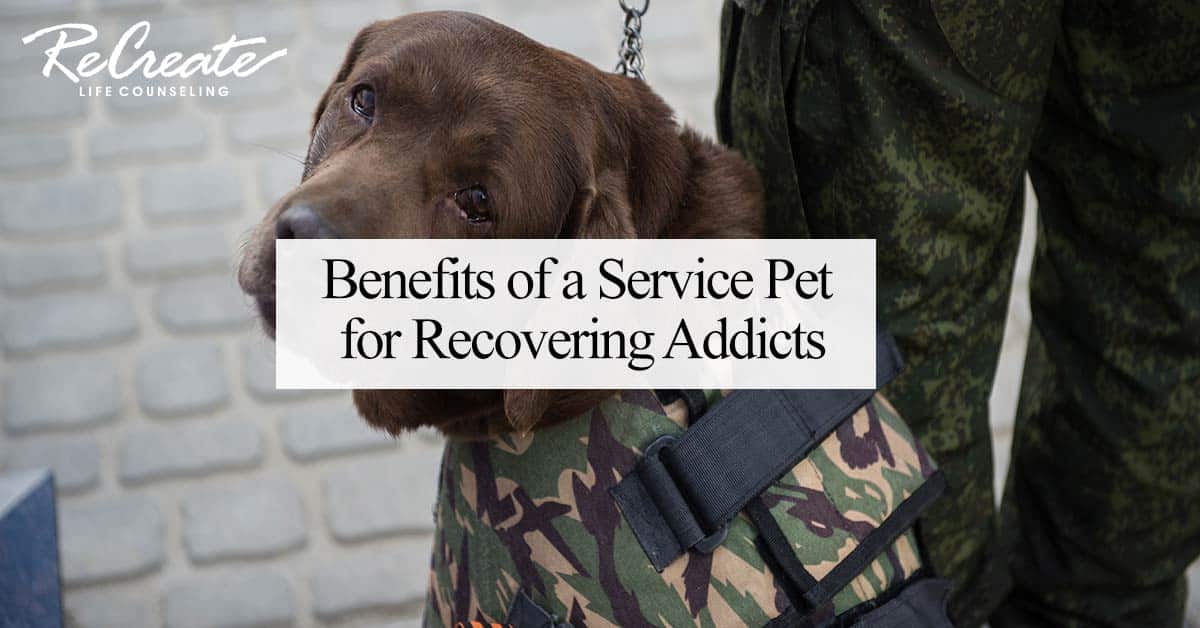Key Takeaways
Service dogs can provide emotional support and companionship, which is crucial for those recovering from alcoholism.
These dogs are trained to perform specific tasks that help individuals manage stress and anxiety, reducing the likelihood of relapse.
Incorporating service dogs into addiction recovery programs can enhance the therapeutic process, making it more effective.
Owning a service dog encourages a structured daily routine and promotes physical activity, both beneficial for maintaining sobriety.
While service dogs offer numerous benefits, they require significant time, effort, and financial resources.
Can Service Dogs Aid in Alcoholism Recovery?
Imagine waking up each morning to a wagging tail and a friendly nudge, reminding you that today is a new day. For many recovering from alcoholism, service dogs provide this daily motivation and more. These specially trained animals offer more than just companionship; they can play a vital role in supporting sobriety.
Service dogs are not just pets; they are trained to perform tasks that aid in the recovery process. From alerting loved ones when their handler is in distress to providing a calming presence during moments of anxiety, these dogs are a lifeline for many in recovery. But how exactly do they help, and can they be the right fit for everyone?
In this article, we’ll explore the various ways service dogs can assist those recovering from alcoholism, including their roles in emotional support, therapeutic interventions, and promoting sober living. We’ll also discuss the challenges and considerations that come with integrating a service dog into one’s recovery journey.
“Service Pet for Recovering Addicts …” from recreatelifecounseling.com and used with no modifications.
Introduction to Service Dogs and Alcoholism
Service dogs have long been recognized for their ability to assist individuals with physical disabilities. However, their role in supporting those with mental health challenges, including alcoholism, is gaining attention. These dogs are trained to perform tasks that mitigate their handler’s disability, which, in the case of alcoholism, often involves emotional and psychological support.
Alcoholism is a chronic disease characterized by an inability to control drinking despite negative consequences. It affects not only the individual but also their family, friends, and community. Recovery from alcoholism is a challenging journey that requires a comprehensive approach, including therapy, support groups, and sometimes medication. Service dogs can be a valuable addition to this multifaceted recovery plan.
Ways Service Dogs Assist Individuals with Alcoholism
Service dogs offer a range of benefits that can significantly aid individuals recovering from alcoholism. Their presence can transform the recovery experience by providing a sense of purpose and responsibility. Let’s delve into the specific ways these dogs can support sobriety.
Emotional Support and Companionship
One of the most significant benefits of having a service dog is the emotional support they provide. These dogs are trained to recognize signs of distress in their handlers and respond accordingly. For someone recovering from alcoholism, this can mean the difference between staying sober and relapsing.
“Having a service dog by your side can provide comfort during difficult times. Their unconditional love and companionship remind you that you’re not alone in your recovery journey.”
Service dogs can also help alleviate feelings of loneliness and isolation, which are common among those in recovery. Their constant presence offers a sense of security and belonging, making it easier to navigate the ups and downs of sobriety.
Daily Routine and Responsibility
Service dogs encourage individuals recovering from alcoholism to maintain a structured daily routine. Having a pet that relies on you for feeding, walking, and grooming instills a sense of responsibility. This structure is essential for those in recovery, as it helps fill the void left by alcohol and provides a positive focus.
Routine tasks such as feeding your dog or taking it for a walk can serve as anchors throughout the day, providing stability and predictability. These simple activities can help reduce anxiety and stress, common triggers for relapse.
Encouragement of Physical Activity and Social Interaction
Another significant benefit of having a service dog is the increase in physical activity. Regular exercise is known to improve mood, reduce stress, and boost overall well-being—all crucial factors in maintaining sobriety. Walking a dog several times a day not only gets you moving but also exposes you to the outside world, encouraging social interaction.
Engaging with other dog owners at the park or during walks can help build a support network, which is invaluable in the recovery process. These interactions can provide opportunities to share experiences, gain new insights, and feel less isolated.
Integration of Service Dogs in Addiction Recovery Programs
Many addiction recovery programs are beginning to recognize the benefits of incorporating service dogs into their treatment plans. These programs understand that a holistic approach, which includes emotional and psychological support, can significantly enhance the recovery experience.
Service dogs can be integrated into various therapeutic settings, including group therapy sessions. Their presence often encourages openness and honesty among participants, fostering a supportive environment where individuals feel safe to share their struggles and successes.
Availability of Programs Incorporating Service Dogs
While not all recovery programs currently include service dogs, there is a growing trend towards integrating these animals into treatment plans. Some programs partner with organizations that train and provide service dogs specifically for individuals in recovery.
These partnerships ensure that the dogs are well-suited to the unique needs of those recovering from alcoholism, offering tailored support that addresses both emotional and physical aspects of recovery.
Training Requirements for Recovery-Specific Tasks
Service dogs undergo extensive training to perform tasks that aid in recovery. This training often includes recognizing signs of distress, providing comfort during anxiety attacks, and even retrieving medication or alerting someone if their handler is in danger.
The training process is rigorous and tailored to the individual’s specific needs. For instance, a service dog might be trained to nudge or lick their handler’s hand during moments of high stress, providing a grounding presence that helps prevent relapse.
Moreover, the bond formed between the handler and the service dog during training can enhance the effectiveness of the support the dog provides. This connection is built on trust and understanding, making the service dog an integral part of the recovery journey.
Challenges and Considerations
While service dogs offer numerous benefits, there are challenges and considerations to keep in mind. It’s essential to evaluate whether having a service dog is the right fit for your lifestyle and recovery goals.
Owning a service dog requires time, commitment, and financial resources. It’s important to consider whether you have the capacity to care for a dog and meet its needs while focusing on your recovery.
Potential Limitations in Recovery Settings
Not all recovery facilities allow service dogs on-site, which can limit their integration into certain treatment programs. It’s crucial to research and find programs that accommodate service dogs if you believe they will benefit your recovery.
Additionally, there may be limitations on where you can take your service dog, affecting your daily activities and routines. Understanding these restrictions beforehand can help you plan and make informed decisions about incorporating a service dog into your recovery.
Compatibility and Lifestyle Adjustments
Bringing a service dog into your life requires adjustments to your lifestyle and living environment. Consider whether your home is suitable for a dog and if you have the time and energy to commit to their care and training. For more information on how service dogs help fight addiction, you can explore resources that detail their benefits.
Compatibility between you and the service dog is also essential. It’s important to spend time with the dog before committing to ensure a good match. A strong bond will enhance the support the dog can provide, making your recovery journey smoother and more fulfilling.
Final Thoughts on Service Dogs in Addiction Recovery
Service dogs offer a unique and effective form of support for individuals recovering from alcoholism. Their presence can provide emotional stability, encourage healthy routines, and facilitate social interactions, all of which are crucial components of a successful recovery journey. However, it’s important to recognize that owning a service dog is a significant commitment that requires careful consideration and planning.
Integrating a service dog into your recovery plan can be a transformative experience, offering a sense of purpose and companionship that can make the path to sobriety less daunting. By understanding the benefits and challenges associated with service dogs, you can make an informed decision about whether this form of support is right for you.
Holistic Benefits and Considerations for Sobriety
Service dogs contribute to a holistic approach to recovery, addressing both emotional and physical needs. Their ability to provide comfort during stressful times and encourage physical activity can enhance overall well-being and reduce the risk of relapse. However, it’s essential to consider the time, effort, and resources required to care for a service dog, ensuring that you are fully prepared to meet their needs.
Ultimately, the decision to incorporate a service dog into your recovery journey should be based on your individual needs and circumstances. By weighing the benefits and challenges, you can determine whether a service dog will support your path to sobriety and help you achieve lasting recovery.
Frequently Asked Questions
Many people have questions about the role of service dogs in addiction recovery. Here are some common inquiries and their answers to help you better understand this unique form of support.
What role do service dogs play in addiction recovery?
Service dogs provide emotional support, companionship, and perform specific tasks that aid in recovery. They can help reduce anxiety, encourage healthy routines, and provide a sense of purpose and responsibility. Their presence can make the recovery process more manageable and less isolating.
How are service dogs trained to assist with alcoholism?
Service dogs undergo extensive training to perform tasks that support recovery. This training includes recognizing signs of distress, providing comfort during anxiety attacks, and alerting others if their handler is in danger. The training is tailored to the individual’s needs, ensuring the dog can provide effective support. For more information on how service dogs help fight addiction, you can explore additional resources.
For example, a service dog might be trained to nudge their handler during moments of high stress, providing a grounding presence that helps prevent relapse. This training enhances the bond between the handler and the dog, making the support more effective.
The training process also includes socialization and obedience skills, ensuring the dog can navigate various environments and situations alongside their handler.
Are service dogs allowed in rehab centers?
Not all rehab centers allow service dogs on-site, so it’s important to research and find facilities that accommodate them. Some centers recognize the benefits of service dogs and incorporate them into their treatment plans, while others may have restrictions due to facility policies or space limitations.
What are the costs associated with owning a service dog?
Owning a service dog involves various costs, including initial training fees, food, veterinary care, and other supplies. Training costs can range from $10,000 to $30,000, depending on the level of training required. Ongoing expenses, such as food and veterinary care, can add up to several hundred dollars per month. For those considering service dogs for addiction recovery, it’s important to understand how service dogs help fight addiction and the associated costs.
It’s important to budget for these expenses and ensure you have the financial resources to provide for your service dog’s needs throughout their life.
Can any dog be a service dog?
Not every dog can become a service dog. Service dogs require specific temperament traits, such as calmness, trainability, and the ability to focus in various environments. Professional training is essential to ensure the dog can perform the necessary tasks to support their handler’s recovery.
While some dogs may naturally possess these traits, others may not be suitable for service work. It’s important to work with a reputable organization or trainer to assess and train a dog for service work, ensuring they meet the required standards.
By understanding these considerations, you can make an informed decision about whether a service dog is the right fit for your recovery journey. Remember, the key to successful sobriety is finding the support system that best meets your needs and circumstances.






